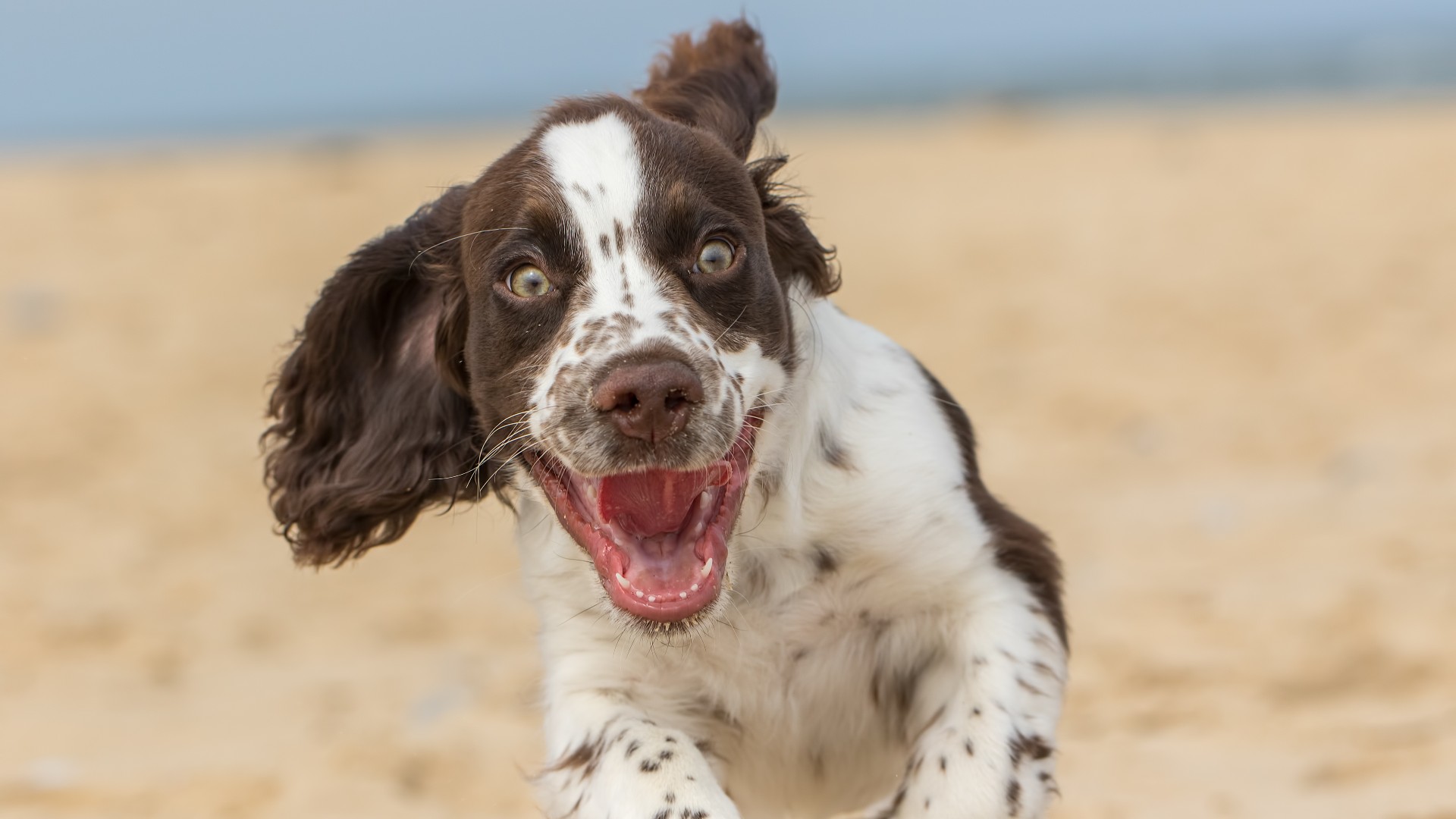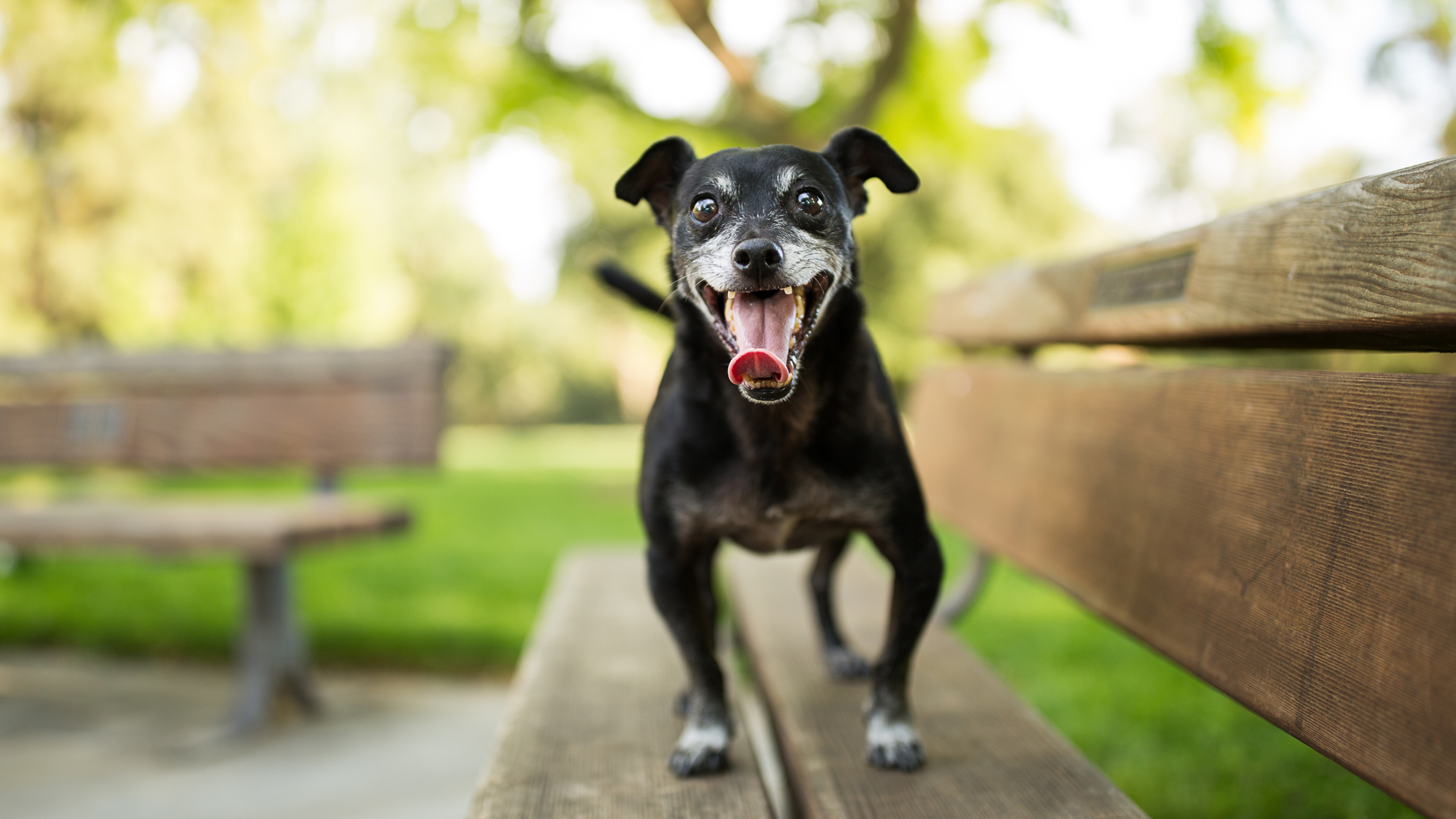How to calm down a hyper dog
Keen to learn how to calm down a hyper dog? Behaviorist Jan Barley reveals the causes of hyperactivity, ways to calm your canine down, and when to seek help

If you have an impulsive, hyperactive dog who cannot relax, you’d probably love to know how to calm down a hyper dog.
Living with a hyper dog can be exhausting because it may feel like “normal” training doesn’t work. It can be tempting to fall into the trap of thinking you have to try to figure out how to deal with a badly behaved dog, but it’s important to note that hyper dogs are not necessarily more trouble than calmer ones.
Some breeds are inherently more disposed to hyperactivity, but that doesn’t mean you can’t improve their behavior. With an understanding of breed needs, correct training and management, it’s 100% possible to have a dog that’s a joy to own and doesn’t embarrass you every moment of the day.
The best puppy toys can help your dog focus, but this article will help you create a long-term plan to calm down a hyper dog. The solution might be easier than you think. We will explain the common reasons for hyperactivity and provide top tips for how to calm down a hyper dog.
What causes hyperactivity in dogs?
Dog hyperactivity may present as excitable or unruly behavior. Your dog cannot focus on your commands or calm down even when there’s nothing in the environment to catch his attention.
Identifying the cause can be tricky. A scientific study published by the American Animal Hospital Association documents a link between canine hyperactivity and low tryptophan (an essential amino acid) levels, so it’s worth discussing this with your veterinary practice if your dog’s behavior fails to improve with training and correct management.
If there are no underlying health issues, there are other potential reasons for hyperactivity in dogs:
Get the best advice, tips and top tech for your beloved Pets
- Breed characteristics: Some dogs have a high chase or working drive and are unsuitable for the average dog household. For example, the Belgian Malinois is an active dog requiring a physically and mentally stimulating lifestyle. Their behavior can turn inwards if they cannot channel their natural drive to work.
- Lack of stimulation: If you have a hyper dog under twelve months old, you may worry about over-exercising during early growth periods. Instead of focusing on physical exercise, stimulate your dog’s mind with training activities. For example, you could teach scent work in your garden or simple tricks that require the dog to use cognitive skills.
- Conditioned behavior: Unfortunately, owners may compound hyper dog issues by inadvertently encouraging inappropriate behavior. For instance, they may have allowed the puppy to jump up when it was small and cute and rewarded it with attention.
When the large adult dog jumps up, owners may become angry and frustrated with the perceived disobedience. They push the dog away and shout, “Get down.” Unfortunately, the more you yell, the more excited the hyper dog becomes. - Diet: Some dogs have allergies to grain and other ingredients and may be better suited to a raw food diet. It’s always worth discussing the situation with your veterinary practice before adjusting a dog’s diet in case of an underlying physical cause.
- Early puppy experiences: Puppies learn about normal dog behavior by socializing with each other, so ideally, socialize your pup with calm, friendly dogs.
Early exposure to other animals, such as cats, birds, horses and livestock, is also beneficial. Get them used to different noises and environments, and ensure your puppy can explore situations safely and supervised.
What can be done to calm down a hyper dog?

Firstly, identify the potential causes of hyperactivity. After that, compile a plan for how the family will train and interact with the dog. Training and handling consistency are vital for success.
The most common training mistake I see with hyper dogs is too much talking. When training your dog, use fewer words and don’t repeat commands because the dog will zone out. When I work with an excitable dog, owners are often surprised that I hardly say a word but quickly gain the dog’s attention.
Words matter less to dogs than action; when we talk less, they become more interested in interacting with us.
The primary factor in how to calm down a hyper dog is to remain calm and slow everything down. Yes, it’s easier said than done, but you may be surprised how quickly your dog relaxes when you do. For example, don’t leave the house if your dog pulls. Wait until he sits calmly. If he pulls on the lead, don’t allow your dog to drag you. Stop and ask him to come back and sit by your side. It may take you an hour to walk 100 yards, but the dog learns from this exercise.
You may have to repeat training exercises multiple times and for lengthy periods. Don’t worry if you don’t get out on a “proper” walk because I guarantee your dog will be exhausted from managing his impulsivity and will quickly learn what you want him to do.
How should I socialize a hyperactive dog?
You may think letting your dog off lead to run around with other dogs will calm him down. It won’t, and for two reasons:
- The excitement stimulates the stress hormone cortisol, which can remain in the dog’s system for 72 hours. During that time, any further stimulation triggers cortisol again, meaning the dog never gets to switch off from a stress response.
- Often, hyperactive dogs lack socialization skills. They cannot read dog body language well, which can get them into trouble with other dogs. Until your dog is better at managing his behavior, only socialize with calm dogs.
Socialize your hyper dog in a controlled environment so that, at stages, you can help him adjust if his excitement becomes elevated. For example, just getting your dog to sit can help calm him. Lying down produces even more of a calm state.
When should I seek professional help for my hyperactive dog?
If you genuinely feel the situation is worsening or the dog’s behavior escalates, it may be time to see professional help with your hyperactive dog. For first-time dog owners, managing excitable behavior can be especially challenging. If you leave it too long to get help, the behavior could lead to reactivity issues.
When seeking professional help, always check that the trainer or behaviorist has experience working with hyper dogs. Their job is not to suppress the behavior but to help you identify anything you might be doing that encourages hyperactivity. They can give you the right tools, such as calming protocols and a training regime to help the dog calm down.
Knowing how to calm down a hyper dog is based on assessing the cause of the hyperactivity. Once you have established the cause, you can take the necessary action to change the behavior.
Have faith that it’s easier than you imagine to learn how to calm down a hyper dog and enjoy a long, relaxing, happy life together.
Want more content like this? Here’s what high prey drive in dogs is and how to manage it.

Jan is a dog behaviorist and writer living in the Cotswolds, UK. She qualified as a dog behaviorist in 2012 after training with Sarah Whitehead, a Certified Clinical Animal Behaviorist with a MSc in Animal Behavior. Jan has shared her life with dogs for over fifty years and is fascinated by behavior. She enjoys helping people better understand their dogs to develop a deep bond and enjoy time together. Jan particularly enjoys working with impulsive and reactive dogs as her legacy from helping Poppy, her rescue Weimaraner cross overcome fear reactivity.
